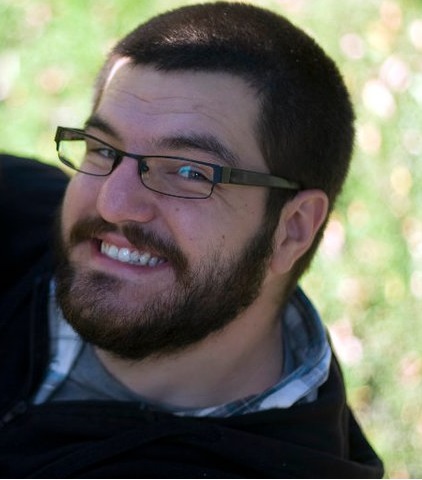We’re Our Own Worst Asteroid
 When I was a kid, I was obsessed with dinosaurs. (I simply cannot understand anyone who wasn’t/isn’t!) Fantasy and mythology are fine, but dinosaurs were real—you can actually touch and see their bones. I’m far more excited about my son’s dinosaur toys than he is, but he is only 2 years old. My very favorite topic of study and discussion when I was young was the mystery of how and why these creatures vanished. How could monsters that powerful simply disappear? Was it the result of a dinosaur war? Overpopulation? Aliens? Were they late for the Ark, and Noah got impatient?
When I was a kid, I was obsessed with dinosaurs. (I simply cannot understand anyone who wasn’t/isn’t!) Fantasy and mythology are fine, but dinosaurs were real—you can actually touch and see their bones. I’m far more excited about my son’s dinosaur toys than he is, but he is only 2 years old. My very favorite topic of study and discussion when I was young was the mystery of how and why these creatures vanished. How could monsters that powerful simply disappear? Was it the result of a dinosaur war? Overpopulation? Aliens? Were they late for the Ark, and Noah got impatient?
Then in the 1990’s, an enormous impact crater was discovered off the coast of Mexico; and the problem was solved. We discovered that a massive chunk of space rock collided with the Yucatan Peninsula 65 million years ago, spewing so much debris into the atmosphere that it dramatically cooled the Earth, with 75% of all plants and animals becoming extinct. Just like that, the planet got colder, the plants became scarcer, larger animals starved, smaller animals thrived, mammals took over, and now we have four Jurassic Park movies.
The Earth had a sore back for a few days, but she kept spinning. Likewise, the tardigrades and dragonflies took a few days to adjust and then kept on like they had before. Life on Earth is sticky like that. No matter how much you abuse it, someone is going to crawl out the other side. We’re a planet of survivors, but not all of us survive. The dinosaurs surely didn’t (at least the non-avian dinosaurs). They ruled this planet for 165 million years; but once the climate changed, no amount of tenure could save them from extinction.
I think that that distinction is important for us today and is something that I rarely hear preached. We are in the midst of another great extinction event—we are simultaneously the dinosaurs and the asteroid. We are the agents of our own doom as we continue to burn fossil fuels, releasing that ancient energy back into the atmosphere, recreating the climate that sustained the dinosaurs and suppressed other life.
However, I would like to challenge current narratives about what’s happening on our planet right now. I keep hearing my fellow activists say that we need to “save the Earth” or “care for the planet,” but the Earth is not in danger. No matter how hot or radioactive she gets, she will spin along unaware. Life will adapt to whatever is left, but that life will not be human—that’s the point. Environmental protection is a profoundly human endeavor. It is a matter of self-preservation, and we need to get that point across if we want to make a difference with climate change doubters. We must spend less time talking about ice sheets and polar bears and more time talking about the Pacific Islanders whose homeland is disappearing under the rising tides. We speak at length about the political turmoil that led to the savage Syrian civil war, but very few people tell the story about the widespread drought that displaced 1.5 million citizens and destabilized the region in the late 2000’s.
This is a matter of profound justice for humanity. Our contributions to the warming of this planet are not just hurting plants and animals, but also we humans who have evolved to live in a very particular sort of climate. The wealthy and well connected will be the last to be affected, but the poor and vulnerable are already feeling the effects.
If you find that you are hitting an impasse in your dialogues about environmental justice, reframe the story. Give it a face. Give it a name. Our species depends on it.
Rev. Zack Jackson is the pastor of Community UCC in Reading, PA. He is passionate about science, justice, Jesus, and dialogue on any of these topics.
Related News
A Letter to My Sons About Climate Change
Dear Soren and Emerson, I am writing you this letter in 2024, but presumably you are...
Read MoreCreation Justice Earth Holders
In order to create a space for people to form deeper connections to Earth and to grieve our...
Read MoreBodily Autonomy Means Every-BODY
Advocacy and Action for Women's and Gender Justice Local events stir thoughts and...
Read More

